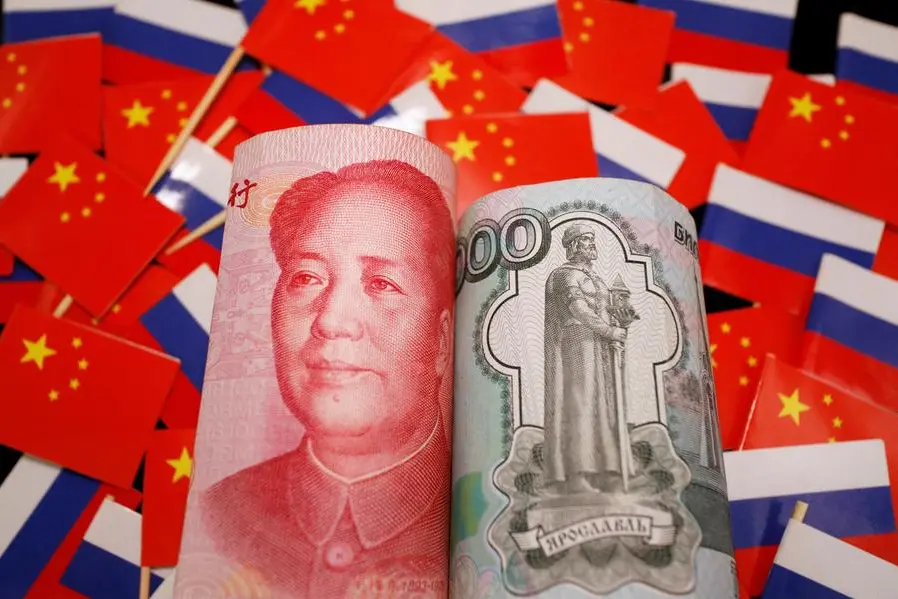PHOTO
Yuan-rouble turnover in China has hit its highest since before Russia's invasion of Ukraine, with exporters attributing this to Russian President Vladimir Putin's visit to Beijing last month.
China interbank trading between the currencies jumped to 1.63 billion yuan ($225 million) in May, the highest since March 2021, according to monthly data.
Russia invaded Ukraine in February 2022 and U.S. sanctions in response have sought to isolate Russia from the dollar-based global financial system. Yuan-rouble turnover slumped to two-year lows in March as China's banks had stepped up scrutiny of trading in order to avoid being targeted by U.S. restrictions.
"Following Putin's visit, many banks seem to have streamlined the process of collecting payment from Russia," said a Chinese exporter of electronic appliances to Moscow.
The businessman, who spoke on condition of anonymity because the matter is sensitive, doubts the trend is sustainable, as "unfortunately, the Ukraine-Russia war is still being fought."
China's National Financial Regulatory Administration, the country's banking sector regulator, did not immediately respond to Reuters' faxed request for comment.
The Biden administration has stepped up warnings about China's support for Russia's war in Ukraine through the export of "dual-use" goods, and threatened sanctions on financial institutions helping Russia skirt Western sanctions.
The Kremlin this week described the U.S. threats against China as "blackmail", after Putin and China's Xi Jinping pledged a "new era" of partnership while meeting in Beijing in mid-May.
"Toward the end of last month, Chinese banks shortened the time needed to process Russia-related transactions," said a different businessman involved in cross-border trade with Russia.
Many banks and their clients were rushing to complete the transactions as there's a lot of pent-up demand, and "the window could be closed soon," he said, also requesting anonymity due to the sensitivity of the subject.
Reuters reported in April that some companies had turned to underground financing channels such as money brokers and even banned cryptocurrency, to skirt a clampdown by banks.
When asked why banks loosened their grip, one businessman in southern China said: "Putin was in China."
($1 = 7.2454 Chinese yuan) (Reporting by Reuters staff; Editing by Jacqueline Wong)





















